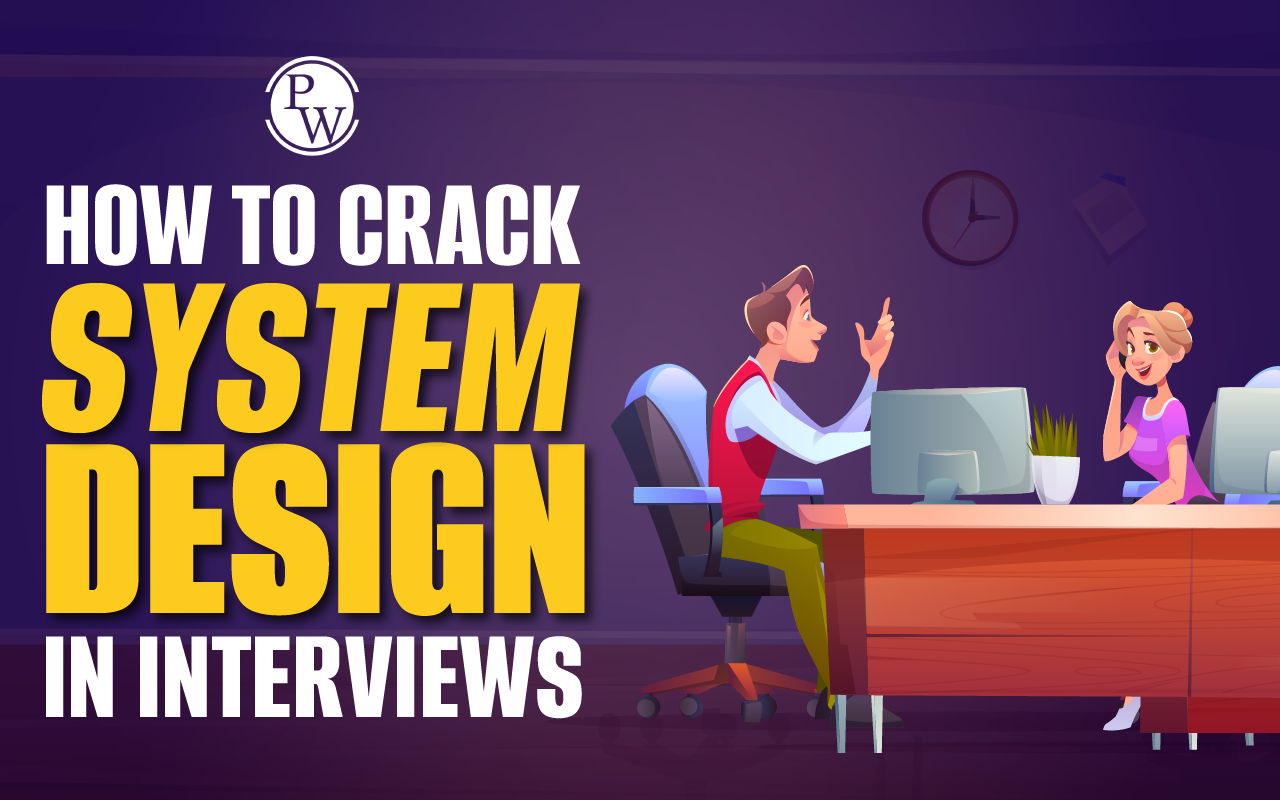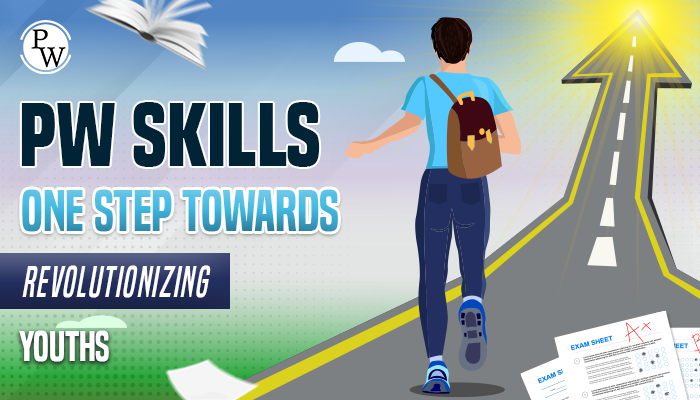System Design Interview: System design interviews are a crucial aspect of technical job interviews, especially for roles that involve building scalable and efficient software systems.
Whether you’re a fresh graduate entering the tech industry or an experienced professional looking to climb the career ladder, mastering system design is essential.
In this blog, we’ll talk about system design interviews and everything you need to know about how to answer system design interview questions like a boss.
If you want to master system design inside and out, then the PhysicsWallah 10-Day System Design Workshop can help you a lot! This workshop will teach you everything you need to know to secure a high-paying system-design job.
What is System Design?

System design involves outlining its structure, components, modules, interfaces, and data to meet specific requirements. This skill is pivotal for software engineers, demanding decisions that impact a system’s overall structure and behaviour. A proficiently designed system guarantees scalability, maintainability, and performance—essential elements for the triumph of any software application.
Top 5 System Design Interview Questions and Answers for Freshers
Here are some of the most commonly asked system design interview questions and answers for freshers:
Question 1: Design a URL shortening service like bit.ly
Freshers often find this question challenging, but breaking it down simplifies the process. Begin by identifying the fundamental components: a user interface for shortening URLs, a backend system to generate and store short URLs, and a redirection mechanism. Focus on scalability factors, such as the potential number of URLs, click-through rates, and potential system bottlenecks.
For a beginner-friendly solution, emphasise the importance of a reliable and fast key-value store for mapping short URLs to their original counterparts. Discuss the need for a distributed architecture to handle the potential load and distribute requests efficiently. Consider incorporating caching mechanisms to improve response times and reduce the load on the database.
Question 2: Design a chat application like WhatsApp
This question assesses your ability to design a real-time communication system. Start by outlining the basic functionalities: user registration, message sending, and group chats. Consider the challenges of real-time synchronisation and message delivery. For freshers, a simple architecture using a database for message storage and WebSocket for real-time communication may suffice.
Highlight the importance of data indexing for fast message retrieval and storage optimization techniques. Discuss the concept of message queues to handle asynchronous message delivery and explore the trade-offs between various storage solutions. Emphasise the need for encryption and secure protocols to ensure the privacy and security of user communications.
Question 3: Design a parking lot management system
Breaking this down for entry-level candidates involves identifying the core entities: parking spaces, vehicles, and a system for managing arrivals and departures. Consider data structures for efficient space allocation and deallocation, and implement a queue-based system for handling incoming vehicles. A straightforward relational database can manage parking space occupancy.
Discuss the benefits of a well-defined API for integrating with other systems and explore the use of sensors for real-time parking space availability. Emphasise the importance of transaction management to handle simultaneous entry and exit requests. Consider discussing the implementation of a user-friendly interface for parking lot attendants and customers.
Question 4: Design a file storage system like Dropbox
Addressing this question involves defining the essential components: user accounts, file uploading, storage, and sharing. A beginner-friendly approach includes using a cloud storage service and focusing on the user interface. Discuss the challenges of file synchronisation and ensuring data consistency across multiple devices.
Highlight the importance of file versioning and conflict resolution to maintain data integrity. Explore techniques for efficient file indexing and retrieval. Discuss the use of encryption for securing user data and the advantages of a distributed storage architecture. Emphasise the importance of scalable file storage solutions to accommodate the growing user base.
Question 5: Design an online bookstore
For this question, freshers can start by identifying the core features: user accounts, catalogue management, shopping cart, and order processing. Use a simplified database schema for storing books, customers, and orders. Discuss how to optimise the system for fast search and retrieval of books, and consider incorporating user recommendations.
Emphasise the importance of a responsive user interface and efficient database queries for a seamless user experience. Discuss the advantages of a microservices architecture for scalability and ease of maintenance. Explore techniques for handling concurrent user requests during high traffic periods. Consider discussing the implementation of a secure payment gateway for online transactions, ensuring the integrity and confidentiality of user data.
Top 5 System Design Interview Questions and Answers for Experienced
Question 6: Design a scalable and fault-tolerant system for a social media platform.
Experienced candidates tackling this question should focus on horizontal scalability, load balancing, and fault tolerance. Discuss the use of distributed databases, content delivery networks (CDNs), and redundancy for critical components. Address challenges like handling massive amounts of user-generated content and ensuring data consistency across geographically distributed servers.
Question 7: Design a distributed cache system
This question delves into the complexities of designing a system for high-performance data caching. Experienced candidates should discuss strategies for cache eviction, consistency, and data partitioning. Consider distributed cache frameworks and algorithms for efficient cache management. Discuss the trade-offs between caching strategies and system complexity.
Question 8: Design a recommendation system for an e-commerce platform
Experienced professionals tackling this question should dive into the intricacies of collaborative filtering, content-based filtering, and hybrid recommendation systems. Discuss the challenges of handling diverse user preferences, incorporating real-time data, and ensuring scalability. Explore machine learning models for personalised recommendations and their integration into the overall system architecture.
Question 9: Design a high-throughput, low-latency messaging system
This question requires experienced candidates to focus on optimising system performance. Discuss the use of message queues, load balancing, and distributed systems for achieving high throughput and low latency. Explore techniques for minimising message processing time and ensuring reliable message delivery. Consider the trade-offs between message durability and system responsiveness.
Question 10: Design a real-time analytics system
Experienced candidates should tackle this question by considering the challenges of processing large volumes of real-time data. Discuss the use of stream processing frameworks, such as Apache Kafka or Apache Flink, and distributed storage systems for efficient data processing. Explore strategies for aggregating and analysing real-time analytics data while ensuring system scalability and fault tolerance.
Conclusion
Mastering system design interviews is a journey that requires continuous learning and practical application. Whether you’re a fresher taking your first steps into the tech industry or an experienced professional aiming for greater heights, understanding the principles of system design is key. The top 10 system design interview questions outlined here provide a roadmap for honing your skills and showcasing your expertise in designing scalable and efficient software systems.
System Design Interview FAQs
How can I stay updated on the latest trends in system design?
Stay informed by regularly reading industry blogs, following tech communities on social media, and participating in relevant forums. Engage in discussions, attend conferences, and explore real-world case studies to keep abreast of evolving trends in system design.
Are there any specific tools or platforms that can aid in practising system design interviews?
Yes, several online platforms offer mock interviews, system design challenges, and collaborative coding exercises. Utilise platforms like Pramp, LeetCode, and System Design Interview to enhance your problem-solving skills and simulate real interview scenarios.
How important is it to explain trade-offs in a system design interview?
Articulating trade-offs is crucial in showcasing your decision-making process. Interviewers want to see your ability to make informed choices based on trade-offs between factors such as performance, scalability, and simplicity. Clearly communicate the rationale behind your design decisions.
What if I don't have experience with a particular system design scenario mentioned in the blog?
While practical experience is valuable, focus on demonstrating your problem-solving skills and the ability to apply design principles. Draw parallels between your existing knowledge and the scenario at hand. Interviewers are often more interested in your thought process than specific domain expertise.
How do I recover from a mistake made during a system design interview?
Acknowledge the mistake gracefully and use it as an opportunity to showcase your problem-solving and adaptability. Walk through how you would correct or improve the design given the chance. Interviewers apprentice candidates who can learn from their mistakes and iterate on their solutions.




